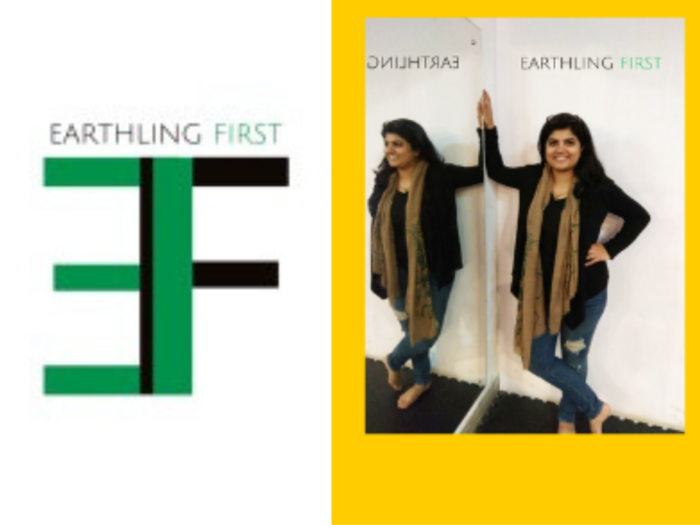Pixabay
- Humans have altered 75% of land and 66% of marine environments, says the data from the United Nations Environment Programme.
- A recent World Economic Forum estimate suggests that India’s decarbonisation journey represents a $15 trillion economic opportunity by 2070.
- Therefore, there is clearly an urgent need for green businesses in India that can contribute towards the long-term sustainability of our country.
The Earth is descending rapidly into a deep ecological crisis as we continue to lose nearly 50 lakh hectares of forests every single year – an area much larger than the entire state of Kerala – mainly due to agriculture, livestock and infrastructure expansion. Humans have altered 75% of land and 66% of marine environments, says the data from the United Nations Environment Programme.
As per the data from the World Bank, environmental degradation costs billions of dollars for India every year – equivalent to roughly 6% of GDP.
Research estimates that land degradation alone leads to a loss of 2.5% of India’s economic output annually. To make matters worse, air pollution also costs 3% of India's gross domestic product,
according to a Forbes report. Climate change and extreme weather events such as hurricanes, floods and fires, for example, directly impact 70% of all economic sectors worldwide, particularly in the global south.
Amid numerous socio-economic challenges, India has also taken substantial steps to minimise the burden on the environment by taking eco-friendly measures. Despite its efforts, India is predicted to be among the top three emitters by 2030.
International Energy Agency study shows that a transition to net-zero carbon can catalyse new industries, create millions of green jobs, and drive trillions of dollars of economic value. A recent World Economic Forum estimate suggests that India’s decarbonisation journey represents a $15 trillion economic opportunity by 2070. This journey could create at least 50 million net new jobs.
Therefore, there is clearly an urgent need for green businesses in India that can contribute towards the long-term sustainability of our country. And numerous women are now taking the lead in generating such opportunities. Let’s have a look at a few such women ecopreneurs of India who are making a significant contribution towards a greener tomorrow.
Mansi Shah — Founder of GiftGreen
GiftGreen
Shah came up with her idea — GiftGreen — when she saw hundreds of national flags lying around after the Independence celebration. To solve this problem, she took the initiative to recycle the flags and then further decided to introduce seeds in the disposable flags.
Her main objective behind this initiative was to protect the environment while maintaining the dignity of our national flag. GiftGreen encourages the people to plant the flag they have created after the celebration.
Other than that, GiftGreen also offers a variety of sustainable products like comb, deodorants, diaries, menstrual products and many more.
Sujata Chatterjee — Founder of Twirl.store
Twirl.store
Started in 2017, Twirl.store is an initiative started by Sujata Chatterjee to reduce cloth wastage and encourage people to conserve natural resources like water.
The main agenda behind this initiative is to make clothing available for less fortunate people. It helps both types of people who have an overflowing cupboard and people who struggle to find basic clothing essentials.
Dolly Kumar — Founder of Skinella
Skinella
Skinella is a well-known superfood skincare brand which offers products made from such as cranberry, dragon-fruit, kiwi, Pink Guava, Seaweed, etc. The brand catering to the skincare needs of young women aged between 15 to 25 years. The products are free from harsh chemicals and toxins as it is made from natural ingredients.
Usage of harsh chemicals, which remains prevalent in the skincare industry, is not only bad for the skin but it also affects the environment. Putting ingredients aside, sustainable beauty products from Skinella include eco-friendly manufacturing, packaging and sourcing also.
The packaging of the products made by this company is touted to be recyclable. Recently, the brand also launched a face sheet mask which is made from 100% biodegradable cellulose sheets.
Pooja Apte — Nemital
Nemital
Nemital, also known as BlinkGreen, is a footwear manufacturing company which is made out of million tons of scrap tyres that are generated in the world annually. Tyres cannot be decomposed easily, so they are nothing but dangerous additions to our landfills.
In October 2018, Apte’s company presented two prototypes of Nemital footwear at 'Startup Yatra' organised by Startup India in association with the Maharashtra State Innovation Society and won the Upcoming Woman Entrepreneur award.
Tamanna Sharma — Earthling First
Earthling First
Founded by Sharma in Delhi, Earthling First is a service provider for sustainable event organisation and waste management at events.
“Events are temporary, but they leave a long-lasting footprint on both - your guests and the planet. All events can be sustainable, whether it's an awesome festival, a conference, a marathon, a beautiful wedding, or even your birthday party,” says the company on their website.
Earthling first reduces waste generation in events through sustainable intervention, planning, and facilitating responsible waste management and disposal by sending it back into the economy, claims the company.





